Investigator
2017 Strategic Research Grant Recipients
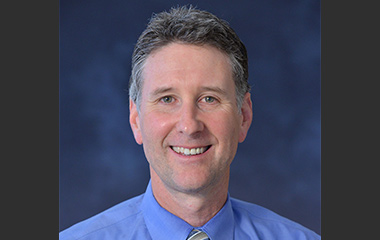
Dr. Arnedt’s ASMF-funded study is a randomized controlled non-inferiority trial to evaluate whether cognitive-behavioral therapy (CBT) produces similar effects when delivered using a telemedicine platform (AASM SleepTM) as compared to traditional face-to-face. One hundred adults with chronic insomnia disorder are being recruited from the Michigan Medicine Behavioral Sleep Medicine Clinic and randomized to 6 weeks of CBT delivered either by AASM SleepTM (CBT-TM) or face-to-face (CBT-F2F).
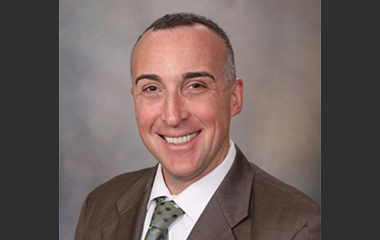
The paucity of evidence-based treatments for adolescent delayed sleep-wake phase disorder (DSWPD) informs this project’s goal to determine whether reduction in evening ambient light using glasses with amber lenses—in conjunction with stable wake times—improves subjective and objective sleep and circadian parameters. Identification of successful treatment is an essential “first step” in establishing whether improvement in sleep complaints can address associated adverse outcomes. Collaborator Dr. Stephanie Crowley McWilliam (Rush University) is an internationally-recognized expert in sleep/circadian studies among adolescents.
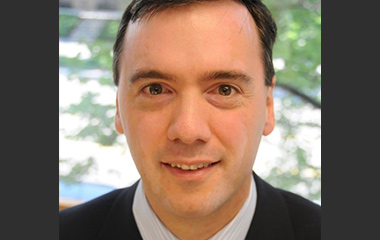
This project will compare cognitive behavioral treatment for insomnia (CBT-I) delivered in-person to treatment delivered by video telehealth in patients with chronic insomnia disorder. Quantitative clinical outcomes will be complemented by qualitative interviews to compare subjects’ experience in each treatment modality. The overarching hypothesis is that use of video telehealth to deliver CBT-I does not reduce clinical improvements and is acceptable to patients.
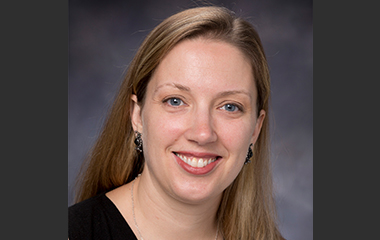
Delirium frequently affects medical intensive care unit (MICU) patients and is a significant therapeutic target to improve outcomes. Experts recommend sleep promotion to prevent or treat delirium. Circadian abnormalities contribute to sleep disruption and, consequently, delirium. We hypothesize that daytime bright light will promote circadian alignment and reduce delirium. Our objective is to investigate via randomized controlled trial the effect of daytime bright light on circadian alignment and delirium in MICU patients.
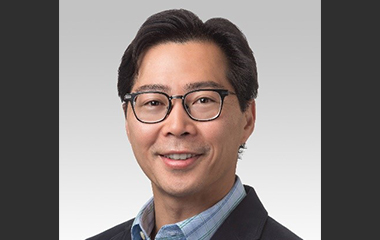
Current pharmacological treatments for chronic hypersomnia (narcolepsy, idiopathic hypersomnia) can effectively reduce hypersomnolence but a high proportion of patients experience depressive symptoms and poor health-related quality of life. This project is aimed at developing a cognitive-behavioral treatment for hypersomnia (CBT-H) and conducting a preliminary test of CBT-H. The overall goal is to improve the quality of care in sleep clinics by using a psychosocial intervention with medical management of hypersomnia.
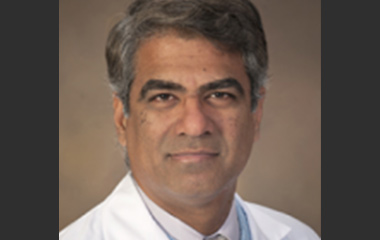
Dr. Parthasarathy is performing a non-inferiority trial of telemedicine CBT-I (AASM SleepTM) versus conventional office-based CBT-I in patients with insomnia who are discharged from the hospital. The rationale for this study is that recently hospitalized patients who are recuperating in their homes would find it difficult to return for weekly visits with a clinical psychologist and would prefer the convenience of telemedicine CBT-I administered in their homes.
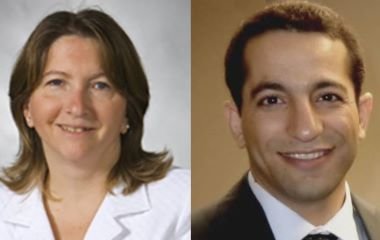
The choice of uniform criteria for apnea and hypopnea scoring should be motivated by the ability to reproducibly apply scoring rules and the metric’s ability to predict outcomes. Current guidelines are not derived from evidence-based approaches, and the utility of various definitions across populations is largely unknown.
Goal of this project is to identify reproducible measures of apnea and hypopnea that best predict clinical outcomes by leveraging existing data within the National Sleep Research Resource.
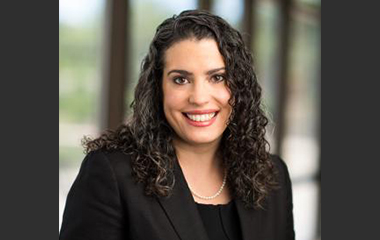
Delayed sleep-wake phase disorder is a debilitating and common sleep disorder. Current treatment paradigms, which are suboptimal, rely on timing exogenous melatonin to an estimation of the patient’s dim light melatonin onset (DLMO). The proposed study will use a randomized controlled trial to test whether timing exogenous melatonin to DLMO measured in-home enhances sleep and circadian outcomes relative to exogenous melatonin timed to estimated DLMO. The findings will be directly applicable to clinical practice.
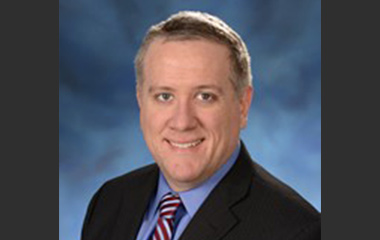
The purpose of this project is to examine the value of board-certified sleep medicine physicians (BCSMPs) in providing care to patients with sleep disorders. Specifically, Dr. Wickwire will conduct a series of comparative effective analyses to examine the public health, clinical, and economic implications of care delivered by BCSMPs, relative to care delivered by non-specialist providers.
2017 Physician Scientist Training Grant Recipients
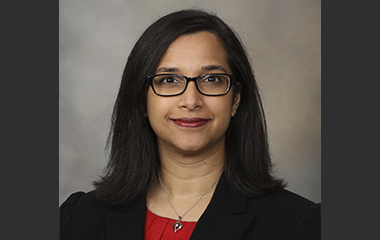
The study goal is to determine if early treatment of hypoxemia associated with sleep apnea in acute stroke patients may lead to improvements in functional outcomes. Acute stroke patients who have oximetry data suggesting moderate to severe sleep apnea with associated hypoxemia will be enrolled. If nocturnal oxygen is associated with functional and neurologic improvements, this form of therapy may represent a more cost-effective and better-tolerated option to utilize in the hospital setting in comparison to positive airway pressure devices.
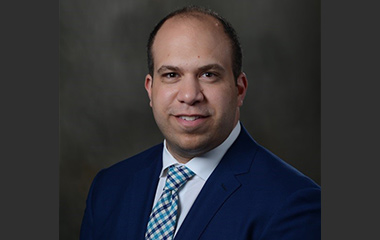
Dr. Mesarwi’s research focuses on the mechanisms which tie together obstructive sleep apnea (OSA) and glucose and lipid dysregulation. His specific interest is in the ways by which the hypoxic burden of OSA may worsen nonalcoholic fatty liver disease (NAFLD). Using mouse models, he has determined that hepatocyte hypoxia inducible factor-1 (HIF-1) mediates the development and progression of NAFLD, in diet-induced obesity, suggesting that liver tissue hypoxia as in OSA may be a key determinant of the NAFLD phenotype.
2017 Bridge to Success Grant Recipients
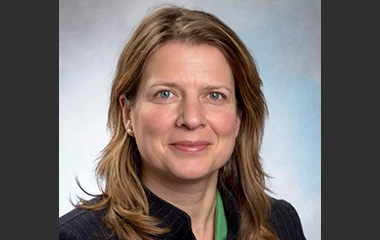
The onset of pathophysiological changes as a result of Alzheimer disease (AD) can precede the clinical manifestations, which offers a key prospect for intervention with disease-modifying therapy. The central hypothesis of the proposed research is that sleep disturbances can be early biomarkers for Aβ and Tau accumulation in preclinical AD. This will be assessed by carrying out home sleep studies on participants of the existing prospective Harvard Aging Brain Study (HABS).
2017 ABSM Junior Faculty Research Grant Recipients
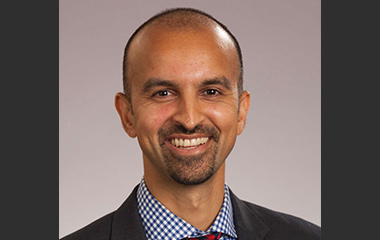
The project will study the effect of hypoglossal nerve stimulation on measures of vascular function such as flow-mediated dilation and peripheral arterial stiffness. The study results will provide clinically meaningful data related to cardiovascular risk reduction for this novel, physiologic therapy for OSA.
2017 Focused Projects Grant Recipients
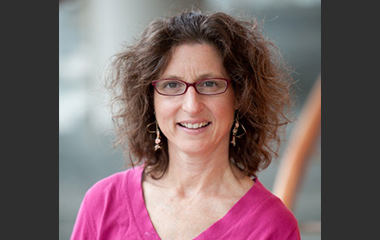
Sleep problems in early childhood adversely impact developing speech, language and communication skills. This study will: 1) Pilot Sleep Problem Screening- by Speech-Language Pathologists (SLPs) at a multi-disciplinary pediatric center serving low-income, ethnic minority children, and; 2) Describe BSP and SDB Symptom Prevalence- using validated screening tools in a heterogeneous sample of 150 children aged 2-5 years seen for SLP treatment.
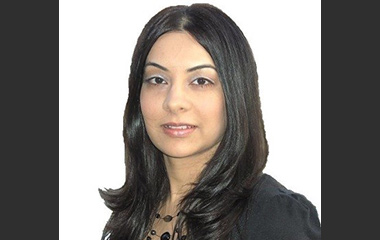
The focus of Dr. Jain’s educational project is to evaluate two educational interventions- article review and oral presentation in a randomized fashion using RE-AIM framework. The overall goal of the project is to improve screening of sleep disorders in children with epilepsy.
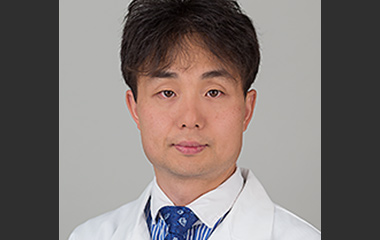
The goal of the study is to investigate circulation time derived from polysomnography. Dr. Kwon will develop an automated circulation time measurement program, after which he will examine the distribution and the characteristics of circulation time within and across the participants from MESA Sleep dataset. This study will provide important information about the utility of this measurement as a physiologic marker for the adverse impact of sleep apnea on the cardiovascular system.
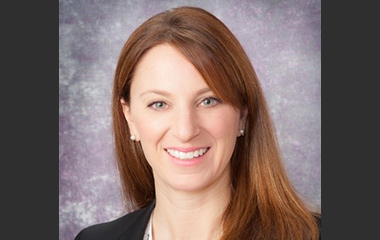
This study aims to involve various stakeholders in the design and initial assessment of the acceptability and feasibility of a sleep promotion program delivered to teens who report insufficient sleep. Aim 1 is to use qualitative methods to obtain and analyze feedback from focus groups of key stakeholders (n=3 groups) and a stakeholder advisory board. Aim 2 is to conduct a case series (n=3) to further develop the intervention and begin to examine the feasibility and acceptability of the program.
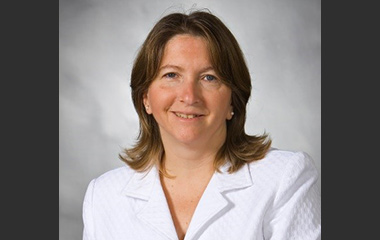
This project builds upon initial work in developing the patient portal, MyApnea.Org, to better understand how to design patient portals that encourage engagement and help improve understanding of sleep apnea, access to peer support, and awareness of research needs and tools. The project uses participatory design discussions with patients and other stakeholders to inform the design of educational presentations and promote engagement with a community of sleep apnea patients so that they can find current, secure and reliable information for their questions.
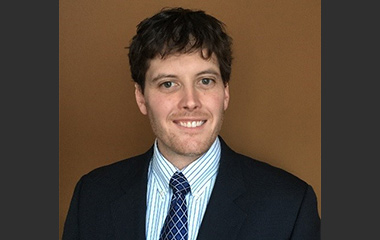
Dr. Rulong’s Focused Projects Award is for development of customized masks for non-invasive ventilation using three-dimensional imaging and printing technologies. The masks are designed for pediatric patients with obstructive sleep apnea (OSA).
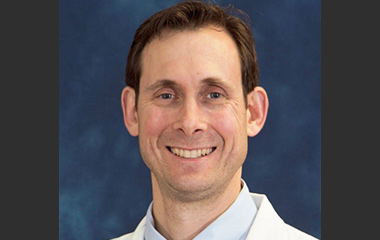
Dr. Yurcheshen’s current project with the ASMF is a Focused Project Award toward studying interrater reliability in diagnosing sleep apnea via telemedicine. He has designed a randomized controlled study looking at the accuracy of clinical impressions in virtual as compared to in-person evaluation. He is also studying patients’ experiences with telemedicine.
2017 AADSM/AASM Foundation Dental Research Grant Recipients
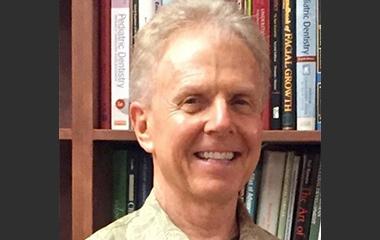
This research will use several interventions to increase adherence to oral appliance therapy in the treatment of obstructive sleep apnea. The interventions include information about sleep apnea and appliance wear shared with a spouse or significant other, text/email/phone reminders, periodic information about sleep apnea and its consequences, and communication about adherence with the primary care provider and sleep physician. Patient appliance wear will be monitored using sensors built into their oral appliances.
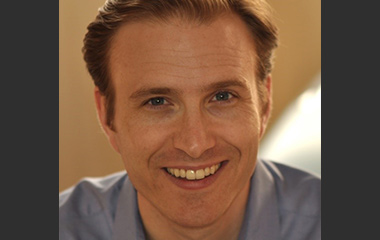
Mandibular advancing oral appliances (OAm) are an effective and increasingly common treatment modality for the management of obstructive sleep apnea in adults, though unwanted tooth movement is a significant and common side-effect. This trial will investigate the determinants of the occlusal changes inherent to oral appliance treatment and also specifically assess the use of morning mandibular repositioning splint (MRS) therapy for minimizing tooth movement.
2017 Disaster Relief Fund Recipients
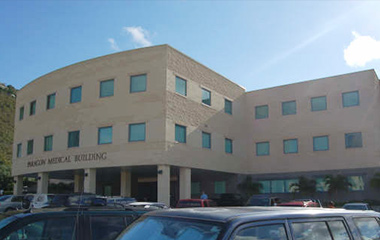
Adam M. Shapiro, M.D., M.A.S., F.A.C.S.
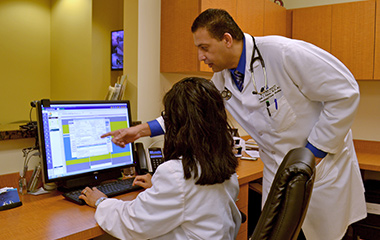
Staff at EENA

